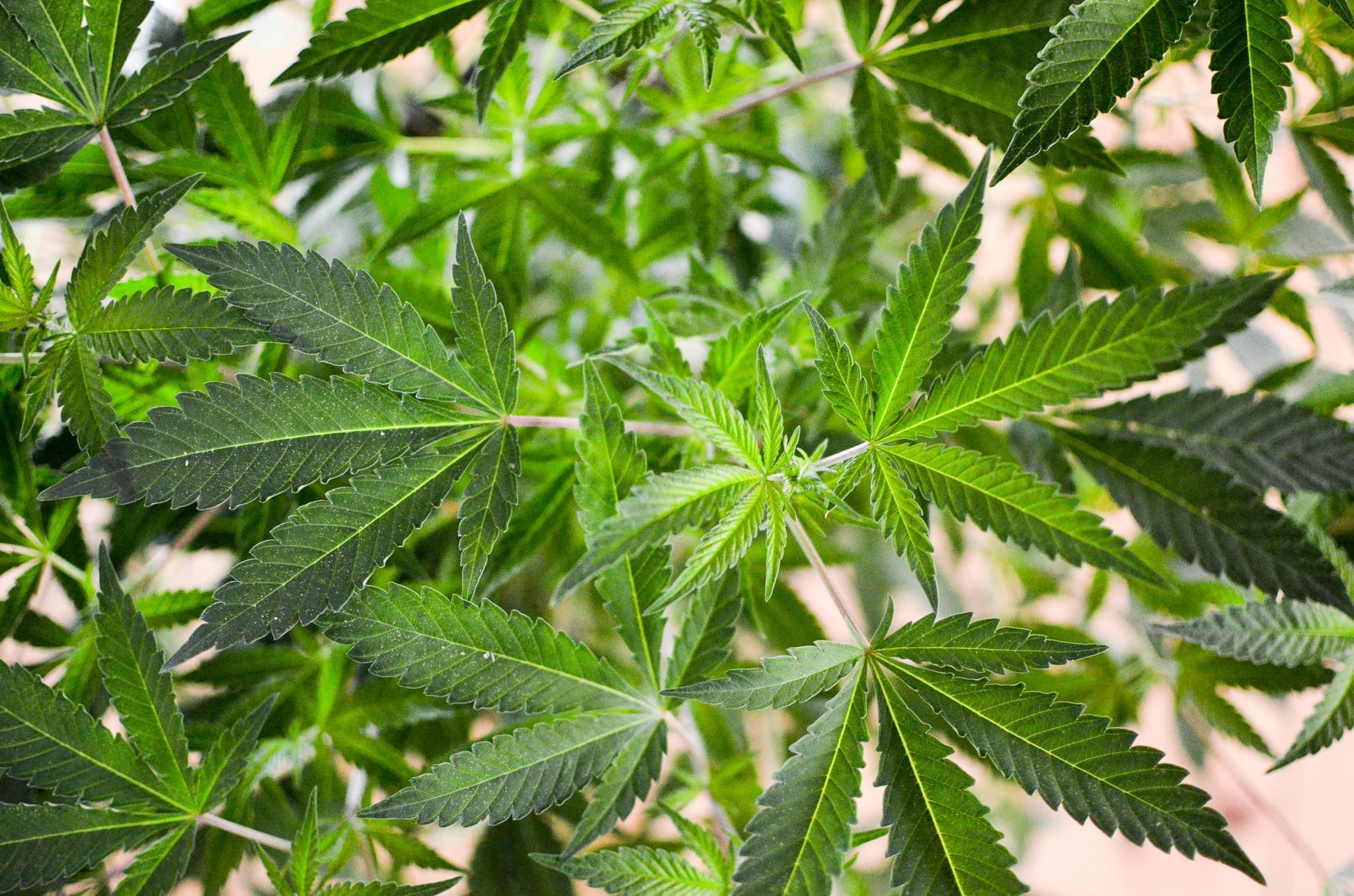featured
The Green Rush Is Over: Welcome To Cannabis’ Quiet Era
Published
3 days agoon

It was never going to be all sunshine and legal gummies. But few imagined it would unravel this fast.
Just five years ago, cannabis legalization seemed like the fastest-growing industry in North America. Between 2018 and 2021, investors poured billions into grow ops, dispensary chains, and weed-tech startups. Everyone from venture capitalists to celebrities wanted a piece of the green rush. Politicians competed to out-progressive each other on cannabis reform. Analysts called it “the next tech boom.” Companies were labeled “the Apple” or “the Amazon” of cannabis. And for a moment, it felt like they were.
Fast forward to 2025: the landscape has shifted as the hype wore off.
What comes next is something stranger, a kind of capitalist hangover.
The dawn of a post-rush cannabis economy feels more like a cautionary tale.
Cracks in the Empire
Joseph Schumpeter, part of that legendary group of early 20th-century economists, dedicated his work to unraveling the dynamics of business cycles. He saw these cycles as a process of emergence, consolidation, and eventual decline. New technologies allowed businesses to emerge and trigger chains of innovation. Schumpeter recognized that promising new products and nascent economies often carried the seeds of their own impermanence, destined to evolve or fade as markets shifted. In cannabis, though, consolidation and decay came surprisingly fast.
Take Tilray, once the darling of Canada’s legalization story. The company’s 2018 IPO was historic: the first cannabis stock to trade on NASDAQ. Its valuation ballooned to over eleven figures at its peak. Today, it is worth a fraction of that, below the $1 billion mark. Imagine the losses. CEOs tend to act as though they do not care, as if the physical business were detached from the speculative financial sphere. But those depreciations have real consequences. Then they make deep cuts to operations to satisfy the board of directors, just like Canopy Growth did, shedding hundreds of employees and shuttering facilities in 2023 and 2024. Layoffs and cuts tend to please investors.
In the U.S., the dramatic fall of MedMen got a lot of attention. Less was written about StateHouse Holdings, Slang Worldwide, Schwazze, and other companies that either collapsed or fell under heavy financial pressure. There is a trick to it in cannabis. Because the industry is still federally illegal, cannabis companies cannot file for bankruptcy protection, meaning they cannot legally go bankrupt. As with those mentioned, many others have spiraled into debt or restructured under creditor pressure.
And of course, something similar happened to the legendary magazine I currently have the pleasure of writing for, when under previous leadership, it failed in its attempt to rebrand itself into something like a dispensary chain.
This period saw numerous companies reduce operations, file for creditor protection, declare insolvency, or collapse entirely. Even firms aiming to produce cannabis in Colombia had to abandon their infrastructure after just a few years.
It was not just one factor. It was clearly a combination: too much hype, not enough market. Something linking the wild volatility of crypto markets to cannabis might have affected how stocks behaved in those early days, a search for big, short-term profits driven by the promise of massive growth. Add to that the fact that cannabis companies are limited in how they can be traded on major exchanges, with relatively low market capitalization and liquidity. That adds volatility.
Eventually, though, what really killed the mood in the market was the long-promised but still unrealized prospect of a legal federal market in the U.S.
A Market Oversaturated, Overtaxed, and Over It
Legal cannabis was supposed to kill the illicit trade, create a job boom, and flood state coffers with tax revenue. But in most states and provinces, the legal market is oversaturated, overtaxed, and structurally inefficient. Supply routinely outpaces demand. Growers in Oregon and Michigan have reported wholesale flower prices collapsing below $500 per pound.
In California, excess product has led to crop dumping, with producers destroying inventory rather than paying taxes on it. The current administration under pro-cannabis, Democratic Governor Gavin Newsom has prohibited all sorts of legalization spinoffs (like synthetic-derived hemp products), heavily seizing illicit cannabis in an attempt to revive what is left of a struggling legal cannabis market. And despite billions in legal sales, the unregulated market still outpaces the licensed sector in both scale and accessibility.
The cannabis economy was built like a startup ecosystem, fast, bloated, and overly financialized. Multistate operators borrowed heavily to build vertical empires. Many issued junk bonds and convertible debt, backed by promises of imminent federal legalization. But when reform stalled in Congress and retail revenue failed to meet forecasts, the debt came due.
Some companies were operating under projections that national legalization would arrive by 2022. Instead, they are stuck navigating fragmented state markets, burning cash with no ability to scale efficiently. And even where legalization happened, like New York or New Jersey, bureaucratic rollouts and local moratoriums stalled store openings, leaving producers with no sales channels.
According to market analysts, only 27% of cannabis companies turned a profit last year.
Welcome to the Post-Legalization Epoch
So what now? It might be a little speculative, but we may be entering the “post-rush epoch” of cannabis. A time when the fantasy of easy profits gives way to the reality of institutional fatigue, market correction, and regulatory reckoning.
This is not the golden age. It is the moment where things either consolidate into a handful of corporate giants or break open into something more decentralized, leaner, and sustainable. I bet some of those large companies I mentioned are betting on the former.
That future is not written yet. But there are signs of a shift. Hybrid business models that blend cannabis with hospitality, education, or culture are gaining ground. Some states are testing cooperative structures and craft certifications that could give small producers a competitive edge.
A Moment of Reckoning
Despite all this, the cannabis market seems to be regaining a degree of stability. The crashes have helped many reimagine a healthier approach to the cannabis business. Wall Street Wannabe’s enthusiasm has cooled, leaving space for culture-based and more grounded models. Smaller, leaner, community-rooted cannabis businesses are doing better.
Even some big companies that overshot in the early days have been cleaning up their balance sheets.
Cannabis is now legal for more than 50% of adult Americans. Paradoxically, the economic infrastructure around it remains shaky. But this is not a story of failure. It is a story of growing pains, of an industry scaled at tech-boom speed, without the stability of (sometimes) good old agricultural economics.
Maybe it was inevitable. The plant was asked to carry too many dreams at once: social justice, state revenue, job creation, corporate profits, rural development, and vibes. Now that the wave has crested, what is left is a quieter, more honest task: rebuilding cannabis as an agricultural product, a cultural good, and a regulated industry. Far from a miracle, but still something worth preserving.
There is no rush anymore. And maybe, that is exactly what the cannabis culture needs.

Author: mscannabiz.com
MScannaBIZ for all you Mississippi Cannabis News and Information.
You may like
-


Two Oakland cannabis dispensaries targeted again by ram-raiding burglars
-


Trump on changes to marijuana policy: 'We're looking at it'
-


Bill Maher Takes Credit for Possibility Trump Might Reshedule Marijuana
-


Social cannabis use rules will be published Friday
-


Over 2,000 plants uncovered at marijuana grow-op in Brantford – CP24
-


Mass. residents sound off on social marijuana use as rules are finalized – NBC Boston
featured
Newly Posted Texas Medical Marijuana Rules Will Let Doctors Recommend New Qualifying Conditions For Patients
Published
9 hours agoon
August 15, 2025
Texas officials are taking another step toward implementing a law to significantly expand the state’s medical marijuana program—posting a draft of proposed rules to let physicians recommend new qualifying conditions for cannabis and create standards for allowable inhalation devices.
The state Health and Human Services Commission is set to formally file the proposed rules next week, and they’ll subsequently be published in the Texas Register, opening up a 31-day public comment period.
This comes about a week after the the Department of Public Safety (DPS) previewed a separate set of rules to increase the number of licensed dispensaries under recently passed legislation.
To comply with the medical marijuana expansion bill that Gov. Greg Abbott (R) signed into law in June, DPS will be formally proposing a future licensing application process, security standards for satellite locations and license revocation parameters.
Meanwhile, the new memo published ahead of a Health and Human Services Commission Executive Council meeting scheduled for Thursday, August 21 outlines additional steps that are being taken.
Specifically, the department is proposing rules that “explain how physicians can request to add medical conditions to the list, set standards for pulmonary inhalation medical devices prescribed under the program, and establish a timeline for reviewing and approving such devices.”
Under the rule, doctors would submit recommended medical cannabis qualifying conditions to the Department of State Health Services (DSHS), which would then forward the recommendation to DPS. That department would be tasked with submitting the request to lawmakers for consideration in the next legislative session.
The rules must be finalized by October 1, 2025.
In addition to increasing the number of dispensaries, revising physician recommendation policies and setting standards for vaping devises, the law signed by the governor also expands the state’s list of medical cannabis qualifying conditions to include chronic pain, traumatic brain injury (TBI), Crohn’s disease and other inflammatory bowel diseases, while also allowing end-of-life patients in palliative or hospice care to use marijuana.
That policy change will be automatically adopted via the enacted statute when the law takes effect on September 1, so it will not require further rulemaking.
DPS, for its part, will ultimately be issuing 12 new licenses for dispensaries across the state. Currently there are only three. The additional licensees will go through a competitive process, with officials prioritizing Texas’s public health regions to optimize access.
The first round of licenses will be awarded to nine of 139 applicants who submitted their forms during an earlier application window in 2023. DPS will select those nine licensees on December 1. The 2023 applicants that didn’t receive a license, as well as any new prospective licensees, will have another shot at getting their license during a second round where awardees will be announced on April 1, 2026.
The 2023 group can still revise their applications up until September 15. New would-be dispensary owners have until that date to submit their applications as well.
The Department of Public Safety has separately previewed future rulemaking to comply with the medical marijuana expansion law.
That includes proposals to establish “security requirements for dispensing organization satellite locations if approved by the department,” creating rules to revoke licenses for dispensaries that fail to dispense cannabis within two years of a license issuance and setting a timeline for “reviewing and taking action on dispensing organization licenses.”
Meanwhile, Texas lawmakers took up a bill on Wednesday that would ban consumable hemp products containing THC. But despite the committee hearing being held, the legislation isn’t expected to advance during an ongoing special session as Democratic state lawmakers continue to deny the House a quorum to pass any measures amid a conflict over proposed redistricting.
The House bill, a companion to an identical Senate-passed hemp proposal, was discussed during a lengthy meeting of the House Public Health Committee, which is able to conduct business despite the broader lack of quorum in the chamber. While the governor has threatened prosecution or dismissal of absent Democratic members, the walkout hasn’t shown signs of relenting.
Time is running short in the special session the governor convened to address a series of outstanding issues, including legislation related to hemp cannabinoid products. Abbott vetoed an earlier version of the controversial ban that passed during this year’s regular session, and he recently outlined what he’d like to see in a revised version of the bill.
The governor and legislative leaders have since affirmed that, if Democrats members don’t show up and establish a quorum by Friday, they will end the current special session and start a new one. Under the state constitution, special sessions cannot last longer than 30 days, but there is no limit to how many can be called.
At a press conference last month, a group of Democratic state senators introduced two new cannabis-related bills, including one that would regulate the hemp market, allowing adults 21 and older to purchase hemp products containing no more than 5 mg of THC per serving.
A second new bill would effectively legalize cannabis for adult use by removing criminal penalties for possession of up to two ounces of marijuana on a person and up to 10 ounces in a single household if it’s secure and out of sight. Cultivation of up to six plants, only half of which could be mature, would also be legalized.
The governor, who during the state’s regular legislative session this year vetoed a similar hemp product ban, SB 3, has also backed the idea of limiting THC potency and prohibiting sales to minors rather than outlawing products entirely.
Under the current Senate-passed proposal, consumable hemp products with any amount of THC—or any other cannabinoid besides CBD and CBG—would be illegal. Even mere possession would be punishable as a Class B misdemeanor, carrying up to 180 days in jail and a $2,000 fine.
Some advocates are hopeful that either SB 5 or its House counterpart could see revisions as they make their way through the legislative process—either to affirmatively regulate the hemp market or to at least ease some of the criminal penalties on individuals found in possession of the affected products.
—
Marijuana Moment is tracking hundreds of cannabis, psychedelics and drug policy bills in state legislatures and Congress this year. Patreon supporters pledging at least $25/month get access to our interactive maps, charts and hearing calendar so they don’t miss any developments.![]()
Learn more about our marijuana bill tracker and become a supporter on Patreon to get access.
—
Separately, Rep. Nicole Collier (D) introduced a one-page bill, HB 42, designed to protect consumers in the state from criminal charges if what they believed was a legal hemp product turned out to contain excessive amounts of THC, making it illegal marijuana. It would prevent the criminalization of someone found in possession of a product that’s labeled as hemp but is determined to contain “a controlled substance or marihuana.”
In order for the person to obtain the legal protection, the product would need to have been purchased “from a retailer the person reasonably believed was authorized to sell a consumable hemp product.”
Another bill—HB 195, introduced by Rep. Jessica González (D)—would legalize marijuana for people 21 and older, allowing possession of up to 2.5 ounces of cannabis, with no more than 15 grams of that amount being in concentrated form.
Yet another proposal would order state officials to conduct a study on testing for THC intoxication.
As for what Texans themselves want to see from their representatives, proponents of reining in the largely unregulated intoxicating hemp industry in Texas shared new polling data indicating that majorities of respondents from both major political parties support outlawing synthetic cannabinoids, such as delta-8 THC.
The survey also found that respondents would rather obtain therapeutic cannabis products through a state-licensed medical marijuana program than from a “smoke shop selling unregulated and untested hemp.”
Ahead of the governor’s veto in June of SB 3—the earlier hemp product ban—advocates and stakeholders had delivered more than 100,000 petition signatures asking Abbott to reject the measure. Critics argued that the industry—which employs an estimated 53,000 people—would be decimated if the measure became law.
Photo courtesy of Philip Steffan.

Author: mscannabiz.com
MScannaBIZ for all you Mississippi Cannabis News and Information.

The age old search for youth may have a new direction – marijuana
The fight to stay young and healthy has been going on for hundreds if not thousands of years. Billions have been spent, but now there is a new twist – can cannabis help make the brain younger. In the age of biohacking and wellness trends, millennials juggling Zoom fatigue and daily stress are asking: can cannabis do more than chill us out—might it actually make our brains feel younger?
RELATED: Marijuana Might Be A Better Hurricane Party Guest
Preclinical research has shown striking results: in older mice, low-dose THC boosted synaptic connectivity and improved memory, seemingly reversing age-linked cognitive decline.
On the human front, a controlled trial at Johns Hopkins and Tufts used dronabinol—a synthetic THC—in 75 Alzheimer’s patients experiencing agitation. Over three weeks, a twice-daily 5 mg dose reduced agitation by about 30% and was better tolerated than traditional antipsychotics.

However, when it comes to cognitive effects in healthy or aging adults, the data is more mixed. A JAMA Network Open study tracked 57 new medical cannabis users for a year using fMRI scans. The result? No meaningful changes in working memory, reward processing, or inhibitory control—good news for safety-minded users.
But another large-scale imaging study found among young adults (ages 22–36), heavy cannabis users showed reduced brain activation during working memory tasks—63% in lifetime users and 68% in recent users.
Long-term studies add nuance: a Danish cohort study followed over 5,000 men from young adulthood to their 60s and found no greater cognitive decline among cannabis users—in fact, users showed slightly less IQ decline than non-users
RELATED: Science Says Medical Marijuana Improves Quality Of Life
What Does It All Mean for the average person?
-
Dronabinol may soothe brain agitation in Alzheimer’s patients—a meaningful bump in quality of life for patients and caregivers Johns Hopkins Medicine.
-
Medical cannabis over a year doesn’t appear to disrupt key cognitive functions in healthy adults, based on fMRI measures.
-
Heavy recreational use, especially among the younger crowd, may impair working memory and brain activity in imaging studies
-
Long-term cognitive aging trends may not suffer—and could potentially fare better—in users, according to a large Danish study.
While animal studies highlight a fascinating possibility—THC under tightly controlled, low doses might rewind aspects of brain aging— human trials are still in early stages. For Alzheimer’s-related agitation, synthetic THC shows real promise. For healthy adults, cannabis appears neurologically safe over a year. Yet, heavy habitual use—particularly among younger individuals—may carry cognitive costs. Conversely, long-term cognitive aging does not seem accelerated among users—and might even be subtly mitigated.

Author: mscannabiz.com
MScannaBIZ for all you Mississippi Cannabis News and Information.
featured
Klutch Cannabis Opening 5th Ohio Dispensary in Northfield
Published
11 hours agoon
August 15, 2025
[PRESS RELEASE] – NORTHFIELD VILLAGE, Ohio, Aug. 15, 2025 – Klutch Cannabis, one of Ohio’s leading vertically integrated cannabis companies, announced the grand opening of its newest dispensary, located at 10650 Northfield Road in Northfield Village, Ohio. Doors will officially open at 10 a.m. Aug. 21, 2025.
The new location marks Klutch’s first dispensary in Summit County, where the company is headquartered. Conveniently situated directly across the street from the MGM Northfield Park Casino and Racetrack, the dispensary is easily accessible from Route 8 and I-271, finally bringing much-needed access to medical cannabis patients and adult-use consumers in Northern Summit County communities, including Northfield Village, Macedonia, Northfield Center Township, Twinsburg, Hudson, Sagamore Hills, Boston Township, Richfield Township, Bath Township, and more.
The expansion further solidifies Klutch’s retail footprint in Northeast Ohio and represents an important milestone as the company begins delivering its renowned top-shelf products on its home turf. Offerings will include exclusive drops and limited releases along with customer favorites from the company’s Klutch Cannabis and Habitat by Klutch lines, its Ohio-exclusive brand partners, and other Ohio cannabis companies. The Northfield dispensary will also feature Klutch’s signature aesthetic and exceptional customer service, as well as a convenient drive-thru pickup window for pre-orders.
Hours of operation for the new Northfield Village location will be:
- 10 a.m. to 10:45 p.m. Thursday through Saturday
- 10 a.m. to 10 p.m. Sunday through Wednesday
“We’re incredibly excited to expand Klutch Cannabis’s retail footprint to Summit County,” Klutch founder and CEO Adam Thomarios said. “This location has been years in the making and will finally provide patients and adult-use customers in Northern Summit County with access to the quality, care, and consistency that Klutch is known for. Our thanks go out, especially, to the community, administration, and officials in Northfield Village for being such great partners from the start. The Village is a great place to do business, and we can’t wait to start making a positive impact in the community.”
For more information about Klutch Cannabis, its dispensaries, and its award-winning products, visit KlutchCannabis.com and HabitatbyKlutch.com or follow @KlutchxCommunity and @HabitatbyKlutch on Instagram.

Author: mscannabiz.com
MScannaBIZ for all you Mississippi Cannabis News and Information.

Two Oakland cannabis dispensaries targeted again by ram-raiding burglars

Trump on changes to marijuana policy: 'We're looking at it'

Bill Maher Takes Credit for Possibility Trump Might Reshedule Marijuana

Social cannabis use rules will be published Friday

Over 2,000 plants uncovered at marijuana grow-op in Brantford – CP24

Mass. residents sound off on social marijuana use as rules are finalized – NBC Boston

Newly Posted Texas Medical Marijuana Rules Will Let Doctors Recommend New Qualifying Conditions For Patients

MNPD seizes pounds of marijuana, arrests man with 7 outstanding warrants

Can Cannabis Help Make The Brain Younger

Klutch Cannabis Opening 5th Ohio Dispensary in Northfield

Undercover video exposes illegal THC sales at North Texas vape shops

Book Review: The Traveling Cannabis Writer’s Guide to America’s Hidden Gems

WKRN: marijuana reclassification impact

Texas Senators Unanimously Pass Hemp THC Ban Bill Hours After Governor Convenes Second Special Session

New York’s cannabis agency allowed dispensaries to open too close to schools | Videos

Texas, California Governors Collide Over Redistricting; Hemp Lies in the Crosshairs

Texas Lawmakers Will Continue Pursuing Hemp Product Restrictions In Second Special Session

Over 2,000 plants uncovered at marijuana grow-op in Brantford

Trucking Industry Group Is ‘Deeply Concerned’ About Marijuana Rescheduling’s Potential Impact On Drug Testing For Drivers

The Best Late Summer Cocktails

#1to3: The Social Media Campaign Urging Trump To Reschedule Cannabis — And How You Can Help

Report Predicts Global Psychedelic Drugs Market Will Reach $22.6B by 2033

New York allowed pot shops to open too close to schools. Now they might have to move

Medical Marijuana ‘Significantly’ Decreases Use Of Opioids By Chronic Pain Patients, New Study Finds

Alert: Department of Cannabis Control updates data dashboards with full data for 2023

Connecticut Appoints The US’s First Cannabis Ombudsperson – Yes there is a pun in there and I’m Sure Erin Kirk Is Going To Hear It More Than Once!

5 best CBD creams of 2024 by Leafly

EU initiative begins bid to open access to psychedelic therapies
New Study Analyzes the Effects of THCV, CBD on Weight Loss

Free delta-9 gummies from Bay Smokes

5 best autoflower seed banks of 2024 by Leafly

Discover New York’s dankest cannabis brands [September 2024]

Curaleaf Start Process Of Getting Their Claws Into The UK’s National Health System – With Former MP (Resigned Today 30/5/24) As The Front Man

May 2024 Leafly HighLight: Pink Runtz strain

Mississippi city official pleads guilty to selling fake CBD products

Press Release: CANNRA Calls for Farm Bill to Clarify Existing State Authority to Regulate Hemp Products

Local medical cannabis dispensary reacts to MSDH pulling Rapid Analytics License – WLBT

Horn Lake denies cannabis dispensary request to allow sale of drug paraphernalia and Sunday sales | News

5 best THC drinks of 2024 by Leafly

Nevada CCB to Accept Applications for Cannabis Establishments in White Pine County – “Only one cultivation and one production license will be awarded in White Pine County”

6 best CBD gummies of 2024 by Leafly

The Daily Hit: October 2, 2024

5 best delta-9 THC gummies of 2024 by Leafly

Weekly Update: Monday, May 13, 2024 including, New Guide for Renewals & May Board meeting application deadline

PRESS RELEASE : Justice Department Submits Proposed Regulation to Reschedule Marijuana

People In This State Googled ‘Medical Marijuana’ The Most, Study Shows

Thailand: Pro-cannabis advocates rally ahead of the government’s plan to recriminalize the plant

5 best THCA flower of 2024 by Leafly
Trending
-

 California Cannabis Updates1 year ago
California Cannabis Updates1 year agoAlert: Department of Cannabis Control updates data dashboards with full data for 2023
-

 Breaking News1 year ago
Breaking News1 year agoConnecticut Appoints The US’s First Cannabis Ombudsperson – Yes there is a pun in there and I’m Sure Erin Kirk Is Going To Hear It More Than Once!
-

 best list1 year ago
best list1 year ago5 best CBD creams of 2024 by Leafly
-

 Business11 months ago
Business11 months agoEU initiative begins bid to open access to psychedelic therapies
-

 cbd1 year ago
cbd1 year agoNew Study Analyzes the Effects of THCV, CBD on Weight Loss
-

 Bay Smokes1 year ago
Bay Smokes1 year agoFree delta-9 gummies from Bay Smokes
-

 autoflower seeds11 months ago
autoflower seeds11 months ago5 best autoflower seed banks of 2024 by Leafly
-

 cannabis brands11 months ago
cannabis brands11 months agoDiscover New York’s dankest cannabis brands [September 2024]




